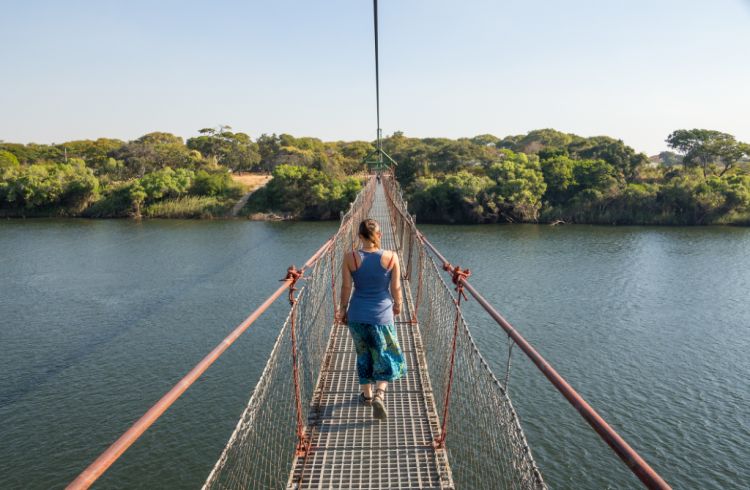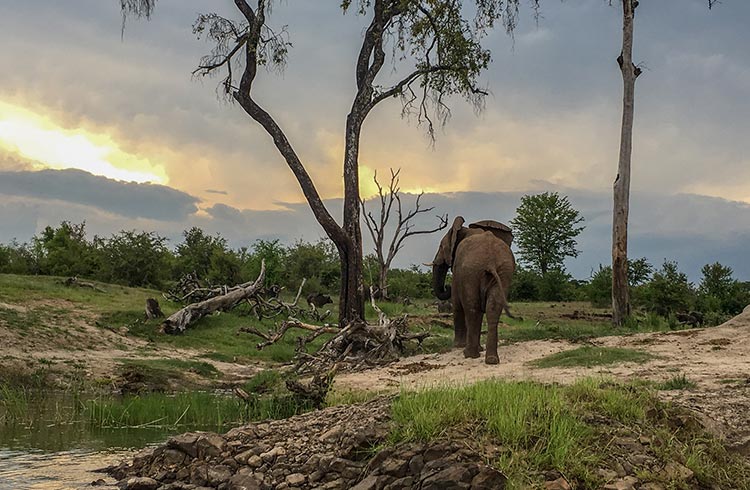Health and Hygiene Tips for Zambia
What vaccinations will I need? Can I drink the tap water? Find out what you need to know to stay healthy while on the road in Zambia.
 Photo © GettyImages/Fabian Plock - EyeEm
Photo © GettyImages/Fabian Plock - EyeEm
- Vaccinations for Zambia
- Medical Treatment
- Mosquito-Borne Diseases
- Can I Drink The Water?
- Other Health Issues
- Bootleg Alcohol
Vaccinations for Zambia
You should consider the following vaccinations prior to travel to Zambia:
- Routine vaccinations: measles, mumps, rubella, diphtheria, tetanus, polio, chicken pox
- Typhoid
- Cholera - there have been outbreaks of the disease in Zambia, the latest in February 2019. Commonly occurs during the rainy season
- Hepatitis A
- Rabies - recommended for travelers who plan to spend extended travel time in rural locations, where animal bitean is a risk
Yellow fever is currently not present in Zambia so vaccination is not required, however, if you have traveled from an infected country, you will need proof of vaccination on arrival.
Medical Treatment
The standard of public medical facilities in Zambia is poor, especially in rural areas where clinics are few and far between. In the capital, Lusaka, and other major towns, there are public hospitals and clinics but they are underfunded, busy and the wait can be long. There are also private hospitals and clinics, however, payment will likely be required upfront. In the event of a serious illness or accident, medical evacuation to South Africa may be necessary.
Pharmacies can be found in Lusaka and other major towns, but medical supplies can be limited and some prescription medicines may not be available. Travelers are advised to bring any medications (in original packaging) they may need for their trip and a doctor's letter outlining their use and dosage as some medications may be considered illegal in Zambia.
Medications such as antihistamines, and other over-the-counter medications which contain small quantities of diphenhydramine (an active ingredient), are on Zambia's list of controlled substances. If you are unsure, contact the embassy for more information regarding medications.
Mosquito-Borne Diseases
Malaria
Transmitted via mosquito bite, it's vital travelers take precautions to avoid contracting this disease including antimalarials. If you choose to take them, chat with your travel doctor first to see which ones are best for the destination you are traveling to.
Dengue Fever
Travelers must protect themselves from being bitten to avoid contracting this disease. Should you start to feel unwell, seek medical help immediately as left untreated, dengue fever can evolve into dengue hemorrhagic fever which is a life-threatening condition.
Chikungunya
Chikungunya is spread by the two mosquito species which also spread dengue fever. Those infected experience joint pain, fever, skin rash, headache and fatigue. So if you get some unusually sore joints - It's advised to seek medical attention.
Can I Drink The Water?
Drinking the local water is not recommended, so stick to boiled or treated water.
If you do end up sick, often it's a case of just riding it out but if things get worse e.g passing blood, you should seek immediate medical attention as you may have dysentery.
Other Health Issues
Traveler's Diarrhea
It goes without saying but always wash your hands before eating (use an antibacterial gel if running water and soap isn't available).
When eating out, avoid buffet-style restaurants where the food may be prepared in a questionable way or left to sit out all day. For more handy tips, check out our article on street food safety.
Read our article on what to do should you end up with a dose of traveler's diarrhea.
Schistosomiasis
Avoid swimming in fresh water to avoid exposure to certain water-borne diseases such as schistosomiasis, which is present throughout Zambia.
Schistosomiasis is a disease caused by parasitic worms called schistosomes carried by freshwater snail species and is commonly found in tropical regions. Symptoms are similar to African Sleeping Sickness plus throw in chills, coughing and stomach pain. Seek medical treatment as quickly as possible. If treated early, the infection can clear in a few days.
More than a billion people are at risk of the disease worldwide and ~300 million are infected. The parasite larvae develop in snails which infect humans. The human body is the host in which they mature and reproduce.
African Sleeping Sickness
The International Association for Medical Assistance for Travellers indicates that African Sleeping Sickness is endemic in the southern and eastern parts of Zambia. Localized cases have been reported in the northern areas, particularly in the Luangwa Valley and Kafue National Park.
It's an infection caused by a parasite, Trypanosoma brucei rhodesiense, carried by the Tsetse fly, which is found in rural locations.
When an infected fly bites you, the infection spreads through your circulatory system and can it result in swelling of the brain. Symptoms include headaches, skin irritation, fever and joint pain, with advanced cases exhibiting disorientation, a lack of coordination and change in behavior.
You will know when a tsetse fly bites you – it's a painful sting. You should take precautions to prevent bites and seek medical treatment immediately if you feel unwell.
HIV-AIDS
The level of HIV/AIDS infection is high so avoid having unprotected sex and use appropriate precautions if you come into contact with blood or body fluids. In 2017, it's estimated around 1.1 million people in Zambia live with HIV however new infections are decreasing.
Bootleg Alcohol
In rural areas and poor urban communities, locals like to make their own home brews and these can vary from beers made from honey to wine made from tea leaves. There is also an illegal distilled brew known as kachasu - a spirit distilled from maize and fruit peels, however unconventional ingredients such as ammonium nitrate (fertilizer) are added. The beverage can contain up to 70% alcohol and many people have died from consuming it. If you plan to have a drink out somewhere, stick to reputable brands.
Related articles
Simple and flexible travel insurance
You can buy at home or while traveling, and claim online from anywhere in the world. With 150+ adventure activities covered and 24/7 emergency assistance.
Get a quote
No Comments